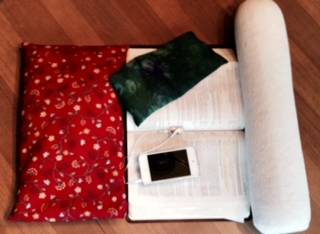
Feeling anxious?
You aren’t alone.
Anxiety disorders are the most common mental disorder in the United States, affecting approximately 40 million adults. This is approximately 18% of our population.
It seems that many of my clients are currently dealing with anxiety. Many of them are at the point where they are having difficulty sleeping and staying focused while running very low on energy. We live in a fast-paced world which doesn’t show signs of slowing down anytime soon. With that in mind, I think it would be prudent to understand a little bit about how anxiety works and what we can do about it.
Some cases of anxiety are due to our individual wiring. Certain chemicals in our brains may not function properly. These cases may need medication to help stabilize them. However, any case of anxiety can be improved by changes in lifestyle. Anxiety is created in us when we feel powerless and like we have no control over the things in our lives. The truth is that there really are some areas of our lives that are beyond our control. With that being said, there are still things that are within our control. The problems with anxiety get bigger when we choose to focus on those things that we can’t control and ignore the things that we can control.
So, what things can you control?
- What you eat (caffeine and sugar can contribute to anxiety)
- Whether or not to exercise
- De-cluttering your environment (clutter causes anxiety)
- Your morning and bedtime routine
- How you spend your free time (or even giving yourself permission to have free time)
- Your attitude
Sounds simple doesn’t it? Well, it is simple. But it isn’t easy. My recommendation would be to tackle one thing on this list at a time. Perhaps you could make a plan to work on one item per week. You will be amazed what a few small behavioral and environmental changes can accomplish!
- Make a commitment to eat more whole foods and cut down on caffeine and sugar. You might be surprised at the effect this would have on your anxiety. Of course, it takes a bit of planning. You will need to go to the grocery store and buy the foods that nourish your body. You might need to look up some recipes first and make a grocery list. If you find yourself getting stressed at the store, consider planning out your trip to avoid the tyranny of the endless.
- Add exercise to your routine. You don’t need to join a gym if that isn’t part of your plan. You might just commit to walking briskly for 30 minutes 5 days per week. After a few weeks you will notice that you are sleeping better and handling all around stress better, which means that you have reduced your level of anxiety.
- De-cluttering your environment will really pay off in reducing free floating anxiety (the kind where you feel anxious, but can’t figure out why). May I suggest a body-double? A body-double is a person who sits with you while you clean and organize your home or office. As crazy as this might sound, it really works! Your body-double can provide company while also keeping you focused on your task.
- Morning and bedtime routines are invaluable. Successful mornings begin with a good bedtime routine the night before and successful days are dependent upon a good morning routine. Be sure to plan for tomorrow before you go to bed tonight. Otherwise, you may lie awake thinking about your to-do list instead of relaxing and falling asleep.
- Nobody can work all the time. You need to have free time to rejuvenate and replenish. Decide to only check your work email account during working hours and use the rest of your day to pursue a hobby, spend time with friends and family, or simply relax. I would also suggest that you not skimp on your lunch time. It is a mid-day break and a good time to refresh yourself. Again, use your lunch time to fuel your body with wholesome foods to help you power through the afternoon.
- Attitude is perhaps the most important thing in determining your emotional well-being. We may not be able to control everything that comes into our world, but we can determine how we will respond to it. Be mindful of your choices and choose to respond positively rather than react negatively. Be proactive with your attitude; don’t wait for something great to happen before you allow yourself to be happy.
This list is by no means complete, but it is a great place to begin. You should examine your own environment and habits to find anxiety “pressure points” that need to be eliminated. If you would like to set up a personal consultation to discuss how you can overcome your struggle with anxiety, please contact me today!
Anxiety is hard. It makes everything seem bigger than life. In order to free yourself of anxiety, you will need to take action. Taking at least one of these steps in the next few days will get you off to a good start.
Let me know your results by commenting below! I would love to hear how your burden of anxiety lifts as you make deliberate choices to overcome it.








 A friend is writing a book about decision management. She says that you can’t manage time, but you can manage decisions. I think she might be right unless…….You have ADHD. Decisions are difficult for people with ADHD. Because decisions are difficult many times they over-complicate an issue. They take a walk down the “What If” lane.
A friend is writing a book about decision management. She says that you can’t manage time, but you can manage decisions. I think she might be right unless…….You have ADHD. Decisions are difficult for people with ADHD. Because decisions are difficult many times they over-complicate an issue. They take a walk down the “What If” lane. A friend called to give me an update on the status of her mother who had been in the hospital for several weeks. The family, always supportive, sometimes close, sometimes not so close had done a wonderful job of making sure that this much loved mom was not alone during her stay in the hospital.
A friend called to give me an update on the status of her mother who had been in the hospital for several weeks. The family, always supportive, sometimes close, sometimes not so close had done a wonderful job of making sure that this much loved mom was not alone during her stay in the hospital.
